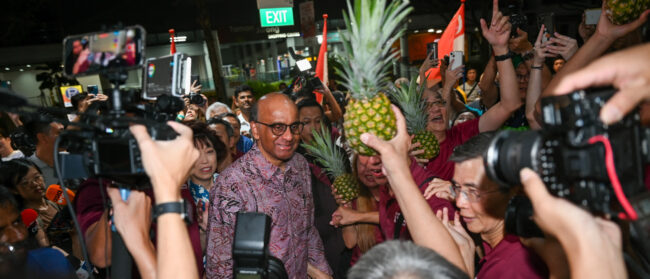When Vietnam was rocked by nationwide protests over a controversial bill on special economic zones (SEZs), locals took it to the streets of major cities and the provinces affected by the zones. Protesters clashed with police, and in Binh Thuan province, demonstrators attacked administrative buildings and set cars on fire.
What caused such frustration was not the prospect of having more SEZs in the country, but the high likelihood that Chinese companies will be among the first to enjoy the suggested 99-year land lease rule. The bill didn’t specify which foreign companies would be given land, but a probability was enough to cause massive anti-Chinese protests unseen since 2014, when a Chinese oil rig was placed in Vietnam’s exclusive economic zone.
In Vietnamese political mythology, China is the ultimate bogeyman. The nation-building narrative in Vietnam evolves not so much around communism or ‘Ho Chi Minh thought’, but rather around the fight of the Vietnamese against foreign rule. The Communist Party of Vietnam (CPV) portrays itself as deserving a monopoly on power – not because it is right ideologically, but because it was the force that consolidated power and drove away the French and the United States, and then repelled Chinese aggression in 1979.
The CPV thus presents itself as a successor in a long line of heroes and rulers revered for protecting the realm from foreign invaders, especially China. And the realm needs protecting, as evidenced by the constant assertions of Chinese power in the South China Sea, including recent military drills, armament deployments on artificial islands and China’s pressure on Vietnam that led to a termination of an oil drilling contract with a Spanish firm.
But the CPV can go only so far in its use of China as the perfect external threat. Vietnam is highly dependent on China for trade and, more importantly, the unprecedented success of China under a Communist Party provides strong international and domestic legitimacy to the one ruling Vietnam. The CPV models many of its initiatives after China and adopts some key practices, with the latest example being a massive anti-corruption campaign.
The Vietnamese are no strangers to protest
Dealing with deeply rooted anti-China sentiment and using it on occasions to strengthen its own legitimacy, the party has to balance its resistance to Chinese assertiveness with deference. But there is more than primal nationalism to the SEZ protests. First, the idea of leasing land to foreigners for 99 years seems to have rung a bell in urban Vietnamese, who have no doubt followed the fates of countries like Sri Lanka, which handed over a southern port to the superpower in a 99-year lease in December last year to cut down its debt to China, which now stands at $8bn. Second, land rights is one of the most burning issues in Vietnamese social life, where the absence of private property on land makes confiscations and land disputes frequent and bitter. Last year, the rural dwellers of Dong Tam commune near Hanoi engaged in a standoff with local authorities and even held officials and policemen hostage for days.
The Vietnamese are no strangers to protest. Besides land rights, they regularly stage demonstrations over unfair labour regulations and practices, corruption, religious freedoms and environmental issues – including the protracted 2016 protests against a toxic spill in Central Vietnam. But all these protests are usually non-political and rarely target the CPV directly.
As with many protests, the latest was not about just one thing. An equally important issue was the Cyber Security Law. The SEZ bill was postponed, but the cyber law that was approved by the National Assembly right after the demonstrations means that now all internet companies will have to store their data in Vietnam and monitor content for things like defamation, anti-state activity and ‘distortion of history’.
Ultimately, the main source of legitimacy for the CPV is economic progress and quality of life – and these are precisely the issues the Vietnamese are willing to go to the streets for, anti-China sentiment serving as a mere catalyst. The cyber law is unlikely to stop domestic and international issues from reaching the growing urban population.
The CPV sees itself as a people-powered political force and has shown a remarkable ability to reinvent itself over 30-plus years of market reforms. The challenge right now is for the party to maintain steady change while the social fabric of Vietnam rapidly transforms. The labour force is dominated by owners and workers of private small and medium businesses, the bulk of export value is produced by foreign companies, the state sector is lagging behind and most of the population is young and cyber savvy. Right now, most of these New Vietnamese are disconnected from politics, but if they become widely politicised through social campaigning and protests like the ones this June, the CPV may find itself in a completely different position.
Without a direct and universally appealing process of turning public sentiment into policy, the CPV post-1986 proceeded from its own understanding of public demands while aspiring to represent all Vietnamese people. Nationwide protests are a side effect of this arrangement that put the spotlight on its inconsistencies. This means that in the quest for harmony, the CPV will have to broaden its social base, continue internal renovation and become a platform for social conversation – or risk protests becoming more political.


